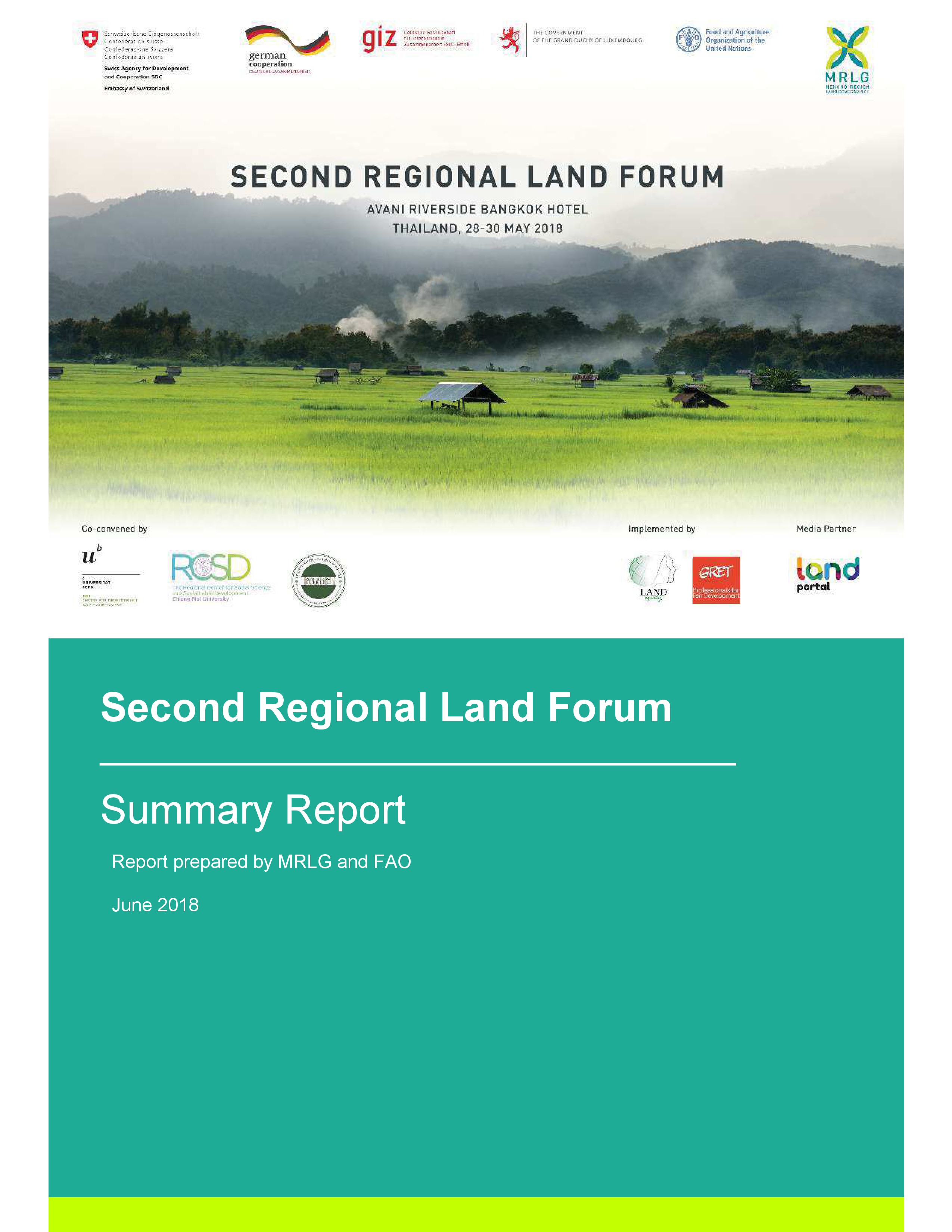Location
Project Description
Land governance is at the center of development challenges in Cambodia, Laos, Myanmar and Vietnam. Governments are revising land policies and practices in order to face these challenges. The project aims to (i) assist the emergence of more favorable policies and practices for securing the rights and access of family farmers to land and natural resources; and (ii) to strengthen the effectiveness of concerned stakeholders through learning, alliance building and regional cooperation.
The MLRG project is based in Laos, with local offices in three other countries: Cambodia, Myanmar, and Vietnam. It supports a wide range of activities (training, exchanges, case studies, focused research, documentation, workshops and seminars) at local, national and regional levels.
The MRLG can support initiatives through three component windows, the first is a learning and advocacy ongoing activity platform supported by National Facilitators in each country. The second two are funded through our Grant Facility open to all stakeholders based on demand and proposals prepared. A short term and immediate response window is the Quick Disbursement Fund (QDF). The second longer term and competitive proposal process is the Innovation Fund (IF). The learning and advocacy activity platform prepared on an annual basis in consultation with stakeholders to organize information collection, analysis, and dissemination, and for horizontal learning and structured learning visits, coaching and pairing, training and organizational strengthening, at the national and regional level.
Members:
Resources
Displaying 26 - 30 of 110State of Land in the Mekong Region
The Mekong region has undergone rapid socio-economic growth over the past two decades alongside pronounced transformations in a number of key sectors and relations between the rural majority and increasingly-aff
Summary Report of the Second Regional Land Forum, 28 – 30 May 2018
The forum was co-hosted by the Mekong Region Land Governance Project and the Food and Agriculture Organization of the United Nations. Co-Conveners of the programme includes the Centre for Development and Environment (CDE), University of Bern, the Deutsche Gesellschaft für International Zusammenarbeit (GIZ), the Regional Center for Social Science and Sustainable Development (RCSD) and the Independent Mediation Group (IMG). The Swiss Agency for Development and Cooperation, Federal Ministry of Economic Cooperation and Development and the Grand Duchy of Luxembourg supported the Forum.
Second Regional Land Forum
Following the success of the inaugural Regional Land Forum in Hanoi in 2016, the Second Regional Land Forum was held from 28-30th May, 2018, in Bangkok. The Regional Land Forum aims to provide a multi-stakeholder platform for networking and dialogue on land governance issues across the Mekong region, particularly Cambodia, Laos, Myanmar and Vietnam (CLMV). The Second Regional Land Forum attracted 280 participants – comprising government, private sector, civil society, researchers, community members, donors, development partners a
Second Regional Land Forum
Following the success of the inaugural Regional Land Forum in Hanoi in 2016, the Second Regional Land Forum was held from 28-30th May, 2018, in Bangkok. The Regional Land Forum aims to provide a multi-stakeholder platform for networking and dialogue on land governance issues across the Mekong region, particularly Cambodia, Laos, Myanmar and Vietnam (CLMV). The Second Regional Land Forum attracted 280 participants – comprising government, private sector, civil society, researchers, community members, donors, development partners a
Second Regional Land Forum
Following the success of the inaugural Regional Land Forum in Hanoi in 2016, the Second Regional Land Forum was held from 28-30th May, 2018, in Bangkok. The Regional Land Forum aims to provide a multi-stakeholder platform for networking and dialogue on land governance issues across the Mekong region, particularly Cambodia, Laos, Myanmar and Vietnam (CLMV). The Second Regional Land Forum attracted 280 participants – comprising government, private sector, civil society, researchers, community members, donors, development partners a




